Loved ones were cut adrift in care homes, say families
- Published
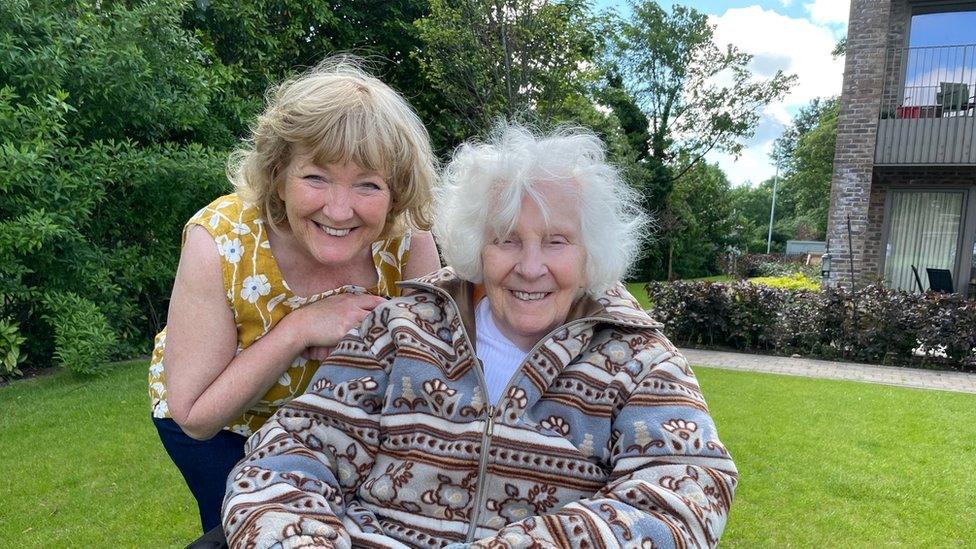
Cathie Russell with her mother, who died four weeks after this picture was taken
Families say care home residents were stripped of their human rights by being locked away from loved ones during Covid.
A report commissioned by Scotland's Covid inquiry has found severe restrictions imposed in care homes "caused great distress" and may have contributed to some deaths.
A relatives group has called the findings "unsurprising".
It said families found themselves "locked out" of care homes.
Cathie Russell represents the Care Home Relatives Scotland (CHRS) group which campaigned throughout the lockdowns for more access to relatives in care homes.
She had a total of 30 minutes with her mother Rose Hamilton in the first year of the pandemic. Mrs Hamilton died in July 2021.
Ms Russell said: "The distress caused to relatives does not come as a surprise to us. However I was taken aback by it not having any legal basis.
"I had always felt it was deeply wrong and it leaves me feeling how I have always felt- that care home residents' rights were thrown under a bus and no consideration was given.
"They are talking about the new national care service and saying it is all rights-based and based in human rights. We had no human rights. The state can stop you seeing your own wife, husband daughter for a year and there is nothing you can do about it."
The report said that the legal basis for confining residents to their rooms and banning visitors was "unclear".
And it said care home residents were arguably discriminated against compared to other citizens.
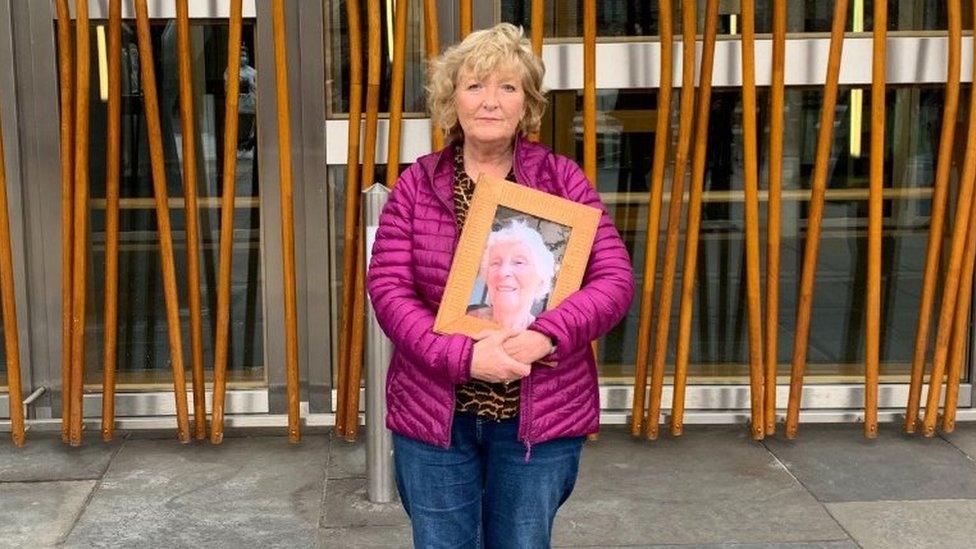
Cathie Russell went to the Scottish parliament to call for better visiting arrangements for families
The 143-page report is one of 14 published by the Scottish Covid-19 Inquiry, which is chaired by Lady Poole.
It found that in the early months of the pandemic there was "little evidence" that the human rights of residents and their families had been considered.
It also accepted that restrictions were to a certain extent understandable, given "the vulnerability of care home residents and the large number of deaths in the sector".
The report was compiled by a team from Napier University's School of Health and Social Care, led by Prof Colin McKay.
CHRS campaigned throughout the pandemic's lockdowns for more visits and Mrs Russell believes her mother's condition deteriorated due to lack of contact with family.
She told the BBC's Good Morning Scotland programme: "Care homes had to collate the deaths but what was done to ascertain what all this isolation and banning relatives did?
"We are not just talking visitors here, we are talking about a husband or wife of 50 years, the mothers of young adults not being able to see them.
"We never argued against restrictions, we always argued that at least one family member being allowed in. They shouldn't have been cut adrift for more than a year in many places."
Mrs Russell said the group had raised concerns early on.
"We had plenty of meetings with government ministers but the problem was we never knew who we were up against," she said.
"The guidance would be improved and we would think we were going to get in and then care home wouldn't let us in, then when that started to improve public health locally would lock us out.
"We were constantly up against it not knowing who was locking us out this time, But the upshot was that I didn't get into that home between 17 March one year and 16 March the following year."
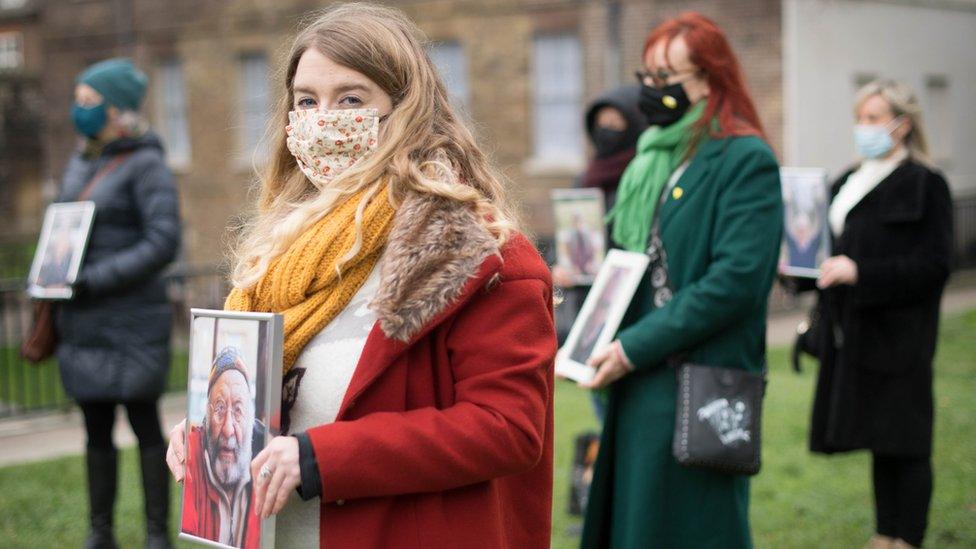
Care home residents faced a tougher time from coronavirus restrictions and families will be looking for answers from the Scottish Covid Inquiry
She believes strongly that care homes "could and should have" done more.
Donald Macaskill, chief executive of Scottish Care, which represents care homes, called the new reports "sobering".
He said: "The conditions laid and the restrictions imposed were extremely severe. I think most of us indicated we had to be very careful that some of the restrictions were not likely to cause more harm than they were to save lives.
The decisions around restriction and lockdown particularly for people with advanced dementia did not appropriately take into account their human rights, did not listen to consideration of individual instances, but we treated one as we treated all and that was wholly inappropriate."
A Scottish government spokesperson said: "First and foremost our thoughts are with every single family who has lost a loved one during the course of the pandemic, and we recognise how difficult and painful this experience has been for staff, residents and their loved ones.
"We welcome these research reports for the public inquiry, which will help shape the areas that the inquiry will direct its efforts. We established Lady Poole's inquiry to provide scrutiny consideration on all aspects of the handling of the pandemic in Scotland, so that lessons can be learned.
"Our priority throughout the pandemic has been to save lives and we have sought to take the necessary actions, based on the latest scientific and clinical evidence, to keep people in care homes as safe as possible, given their increased vulnerability."


This is the first opportunity to see the evidence being considered by the public inquiry - and it's substantial.
A total of 14 documents and they consider a wide range of subjects. From decision-making around social care, education, the economy to pandemic planning.
The Edinburgh Napier University report is one of the most compelling.
The report says there is evidence that care homes felt pressurised to take patients from hospital and that families had very little say in what was happening.
They question the legal basis for imposing such severe restrictions, arguing that it could be considered discrimination against this vulnerable group.
And they say the unintended consequences of restricting visiting - leaving residents without stimulation and often stuck in their own rooms, will have caused distress, decline and even death.
Balancing big decisions on limiting the spread of infection with protecting people's human rights will be just one of the themes of this public inquiry.
It will be for Lady Poole and her team to establish the facts and decide what lessons can be learned for the future.
- Published16 June 2022
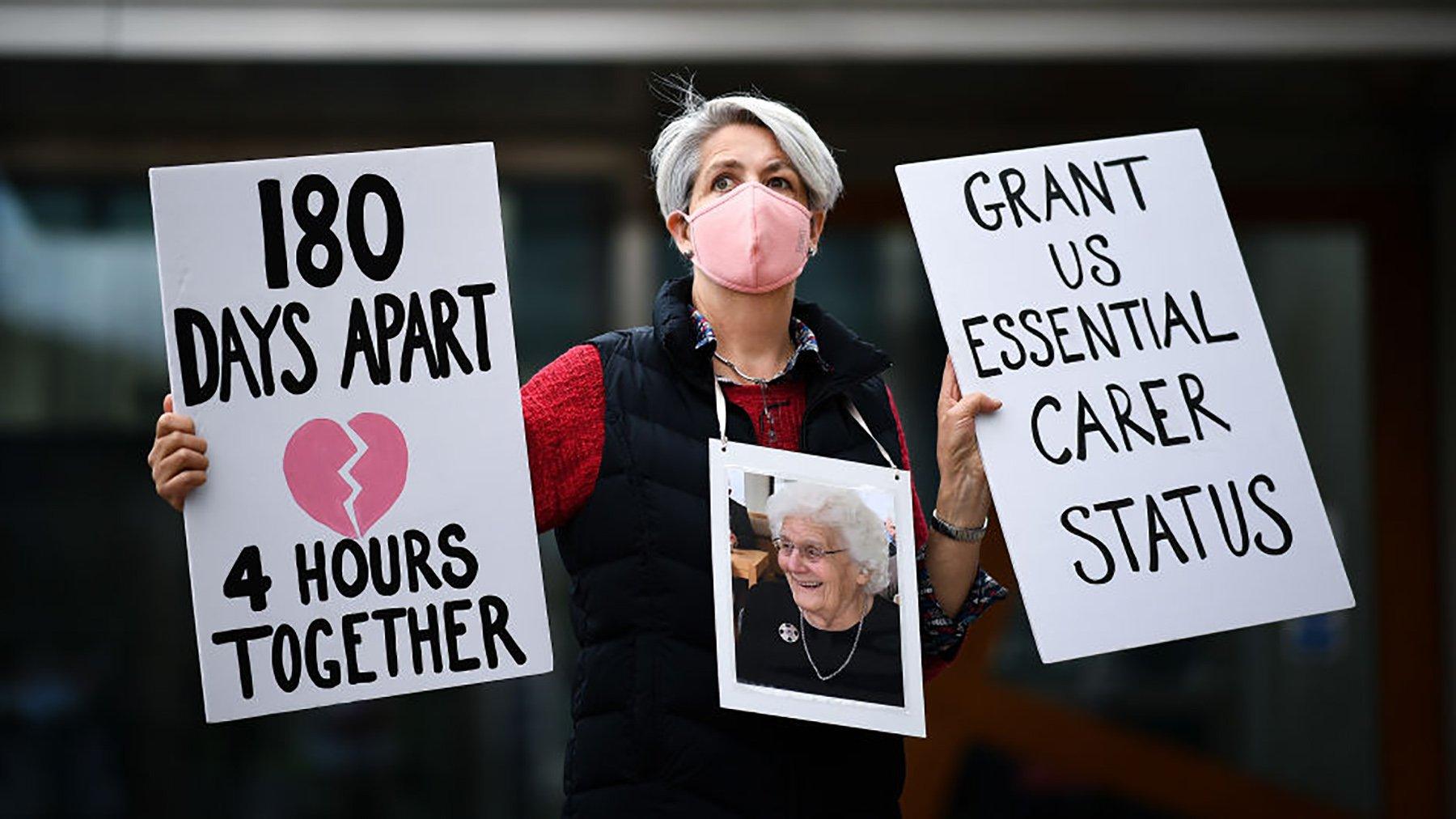
- Published16 September 2020
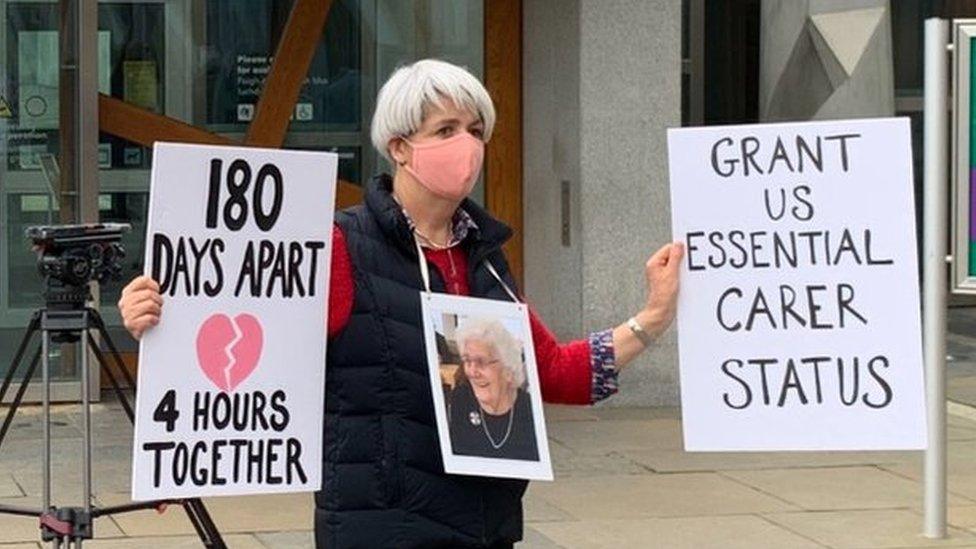
- Published5 April 2022
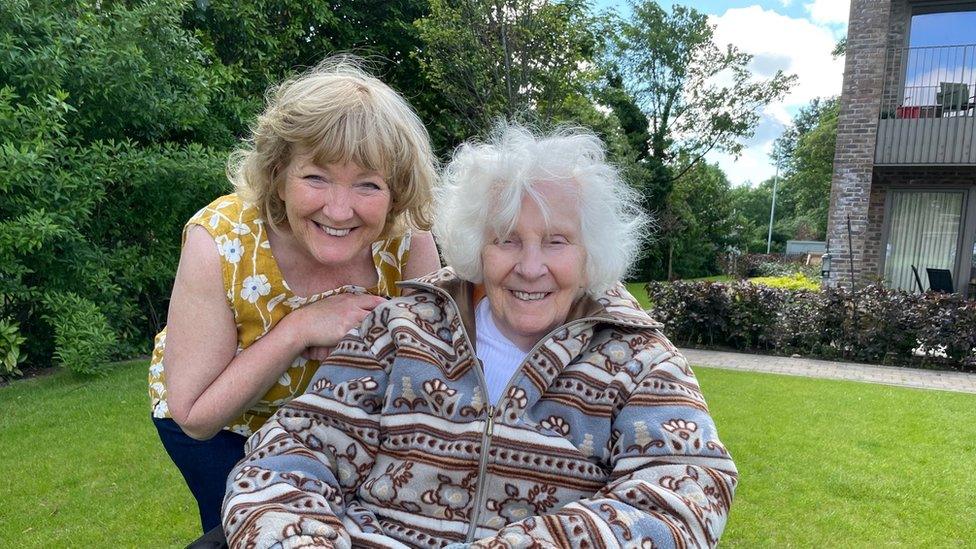
- Published24 August 2021
